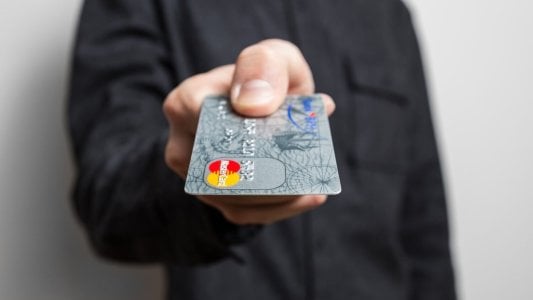Hoteliers cry foul over ‘Money Miners’ putting Aussie businesses at risk
- Replies 3
We all know that the hospitality and tourism industry has been among the hardest hit by the COVID-19 pandemic, and the economic fallout that has followed.
Even though things are finally starting to head in the right direction, there is still a lot of rebuilding that needs to happen, and the last thing businesses need is to be on the receiving end of fraudulent credit card claims that put their livelihoods in jeopardy.
Unfortunately, this is exactly what some hoteliers around the country have been experiencing — and it appears to be getting worse.
One of those unlucky hoteliers is Marion Simon who, as manager of Boulevard North Holiday Apartments, says she’s had to deal with chargebacks more and more over the past few months.
‘I'm sitting here with six chargebacks that have happened in the last three months,’ Simon said. ‘It’s legalised theft; it’s unfair.’
The issue happens when a guest files a dispute with their bank or credit card issuer if they believe they have been incorrectly charged for a service or, worse yet, found fraudulent transactions for services they did not use.
If the bank is made to believe the activity is fraudulent, the hotel covering the transaction won’t receive any payment for services they’ve already offered — meaning thousands of dollars can be taken from the business through no fault of their own.
While this is a great fail-safe against fraud, it has also been used as a tool to commit fraud in an unfortunate turn of events.

Switch Hotel Solutions Director Chris de Closey also shared a similar scheme used against his business.
‘Over the last two months, we've had over $6000 worth of chargebacks. That's been a direct impact to our bottom line,’ he said.
‘Ghosts’ and ‘Money Miners’
The incidents have happened so frequently that the two hoteliers have begun noticing patterns.
The first one is that the fraudulent chargebacks involve stolen credit cards used to pay through online services.
‘The customers will arrive late or after-hours, so there’s no sizing up the customer, no interaction with the onsite manager, so it’s essentially creating a scenario where they’ve been ghosts,’ de Closey said.
By the time the booking is done and the customers leave, then it becomes known that the card was stolen and the banks will not honour the transaction.
‘I call them “Money Miners”,’ Simon said.
Making things worse, de Closey explained that these “Money Miners” tend to wreck the accommodations they book — leaving them in a dishevelled state with items strewn about, damage to walls, and even drug paraphernalia.
‘The owners are out-of-pocket for the lost accommodation, and they’re out-of-pocket for the repairs,’ he said.
Simon also shared the same observations when it came to individuals using stolen credit cards leaving things worse off than when they arrived.
‘The remotes are bent, beds have been jumped on, mirrors have been broken, doors have been pulled off,’ Simon said.
‘I would say the majority of the time, the chargeback comes. So the two do seem to go hand-in-hand.’
‘Oops, my card was stolen!’
But beyond the stolen credit cards used by shady individuals, the two hoteliers have also noted an uptick of people suddenly filing disputes after staying at accommodations they booked.
‘We are finding that more people are trying to dispute the transaction with their banks,’ de Closey said.
Simon added: ‘The moment they leave, they say their card’s been stolen. “Oops, I found out my card’s been stolen!”, and it’s been stolen ten days ago.’

‘A stupid fraud to commit’, but why isn’t anyone getting caught?
You’re probably thinking: shouldn’t it be easy to catch these fraudsters?
Bond University Associate Professor of Criminology and former police officer Terry Goldsworthy holds a similar opinion.
‘I would’ve thought it’s a really stupid fraud to commit, to be honest,’ he said. ‘I would’ve thought there’d be a wealth of evidence at the location you stayed.’
He said this would include who was on record using the credit cards and closed-circuit television (CCTV) at the hotels and accommodations.
But for de Closey and Simon, things aren’t as simple as they sound.
For a single dispute, it would take them hours to source the evidence they need.
In addition, they also feel like the banks aren’t in their favour from the get-go.
‘I would believe that anywhere between 75 and 100 per cent, the banks would rule for the cardholder, not the merchant,’ Simon said.
‘I can’t recall any time we’ve had a… dispute called in our favour,’ de Closey added.
An appeal from hoteliers
In hopes of protecting the industry, Switch Hotel Solutions has suggested two-step verification for banks and cardholders, where legitimate cardholders are given a chance to authorise a transaction through a code they receive.
'There would be no such thing as a fraud case because every customer would have to verify that transaction,' said de Closey.
Bond University Associate Professor of Criminology Terry Goldsworthy says the responsibility still lies with banks to vet all claims for chargebacks in full and ensure that this type of dishonest activity does not go unchecked.
‘We’ve had somebody in the industry who’s had three (chargebacks) in the last two days,’ Simon shared.
‘I’m begging the banks to take this seriously and to put into place the necessary verifications that can stop this in its tracks once and for all.’

Meanwhile in a statement, the Australian Banking Association said that banks have measures in place to address fraudulent claims.
‘Banks invest heavily in fraud detection and prevention as a part of addressing related criminal activity,’ the group said in a statement.
‘Credit card providers and banks have detailed investigation processes to determine the legitimacy of a disputed transaction and rigorously review the accuracy of claims.’
‘Hospitality operators that believe someone is misleading them should lodge a complaint.’
Australians lost $490.1 million to credit card fraud in 2021-2022.
 It’s not too far-fetched to imagine that this scheme could be used against other businesses.
It’s not too far-fetched to imagine that this scheme could be used against other businesses.
Hopefully, something could be done before it’s too late for people like de Closey and Simon.
On the topic of hotels, you may want to check out these stories:
Tell us your thoughts below!
Even though things are finally starting to head in the right direction, there is still a lot of rebuilding that needs to happen, and the last thing businesses need is to be on the receiving end of fraudulent credit card claims that put their livelihoods in jeopardy.
Unfortunately, this is exactly what some hoteliers around the country have been experiencing — and it appears to be getting worse.
One of those unlucky hoteliers is Marion Simon who, as manager of Boulevard North Holiday Apartments, says she’s had to deal with chargebacks more and more over the past few months.
‘I'm sitting here with six chargebacks that have happened in the last three months,’ Simon said. ‘It’s legalised theft; it’s unfair.’
The issue happens when a guest files a dispute with their bank or credit card issuer if they believe they have been incorrectly charged for a service or, worse yet, found fraudulent transactions for services they did not use.
If the bank is made to believe the activity is fraudulent, the hotel covering the transaction won’t receive any payment for services they’ve already offered — meaning thousands of dollars can be taken from the business through no fault of their own.
While this is a great fail-safe against fraud, it has also been used as a tool to commit fraud in an unfortunate turn of events.

Hoteliers are sounding the alarm on credit card fraud committed by criminals taking advantage of chargeback schemes. Image Credit: Flickr
Switch Hotel Solutions Director Chris de Closey also shared a similar scheme used against his business.
‘Over the last two months, we've had over $6000 worth of chargebacks. That's been a direct impact to our bottom line,’ he said.
‘Ghosts’ and ‘Money Miners’
The incidents have happened so frequently that the two hoteliers have begun noticing patterns.
The first one is that the fraudulent chargebacks involve stolen credit cards used to pay through online services.
‘The customers will arrive late or after-hours, so there’s no sizing up the customer, no interaction with the onsite manager, so it’s essentially creating a scenario where they’ve been ghosts,’ de Closey said.
By the time the booking is done and the customers leave, then it becomes known that the card was stolen and the banks will not honour the transaction.
‘I call them “Money Miners”,’ Simon said.
Making things worse, de Closey explained that these “Money Miners” tend to wreck the accommodations they book — leaving them in a dishevelled state with items strewn about, damage to walls, and even drug paraphernalia.
‘The owners are out-of-pocket for the lost accommodation, and they’re out-of-pocket for the repairs,’ he said.
Simon also shared the same observations when it came to individuals using stolen credit cards leaving things worse off than when they arrived.
‘The remotes are bent, beds have been jumped on, mirrors have been broken, doors have been pulled off,’ Simon said.
‘I would say the majority of the time, the chargeback comes. So the two do seem to go hand-in-hand.’
‘Oops, my card was stolen!’
But beyond the stolen credit cards used by shady individuals, the two hoteliers have also noted an uptick of people suddenly filing disputes after staying at accommodations they booked.
‘We are finding that more people are trying to dispute the transaction with their banks,’ de Closey said.
Simon added: ‘The moment they leave, they say their card’s been stolen. “Oops, I found out my card’s been stolen!”, and it’s been stolen ten days ago.’

De Closey said that customers who use stolen credit cards most often leave booked rooms damaged and with drug paraphernalia scattered. Image Credit: Unsplash
‘A stupid fraud to commit’, but why isn’t anyone getting caught?
You’re probably thinking: shouldn’t it be easy to catch these fraudsters?
Bond University Associate Professor of Criminology and former police officer Terry Goldsworthy holds a similar opinion.
‘I would’ve thought it’s a really stupid fraud to commit, to be honest,’ he said. ‘I would’ve thought there’d be a wealth of evidence at the location you stayed.’
He said this would include who was on record using the credit cards and closed-circuit television (CCTV) at the hotels and accommodations.
But for de Closey and Simon, things aren’t as simple as they sound.
For a single dispute, it would take them hours to source the evidence they need.
In addition, they also feel like the banks aren’t in their favour from the get-go.
‘I would believe that anywhere between 75 and 100 per cent, the banks would rule for the cardholder, not the merchant,’ Simon said.
‘I can’t recall any time we’ve had a… dispute called in our favour,’ de Closey added.
An appeal from hoteliers
In hopes of protecting the industry, Switch Hotel Solutions has suggested two-step verification for banks and cardholders, where legitimate cardholders are given a chance to authorise a transaction through a code they receive.
'There would be no such thing as a fraud case because every customer would have to verify that transaction,' said de Closey.
Bond University Associate Professor of Criminology Terry Goldsworthy says the responsibility still lies with banks to vet all claims for chargebacks in full and ensure that this type of dishonest activity does not go unchecked.
‘We’ve had somebody in the industry who’s had three (chargebacks) in the last two days,’ Simon shared.
‘I’m begging the banks to take this seriously and to put into place the necessary verifications that can stop this in its tracks once and for all.’

The fraudulent chargebacks have prompted two hoteliers to call for banks to put in place more stringent measures against credit card fraud like two-factor authentication. Image Credit: Unsplash
Meanwhile in a statement, the Australian Banking Association said that banks have measures in place to address fraudulent claims.
‘Banks invest heavily in fraud detection and prevention as a part of addressing related criminal activity,’ the group said in a statement.
‘Credit card providers and banks have detailed investigation processes to determine the legitimacy of a disputed transaction and rigorously review the accuracy of claims.’
‘Hospitality operators that believe someone is misleading them should lodge a complaint.’
Australians lost $490.1 million to credit card fraud in 2021-2022.
Key Takeaways
- Scammers have been taking advantage of credit card chargebacks, according to two hoteliers.
- Switch Hotel Solutions director Chris de Closey said over the past two months he’s had over $6000 worth of chargebacks, negatively impacting his business.
- Marion Simon of Boulevard North Holiday Apartments meanwhile has had six chargebacks in the past months filed through ‘legalised theft’.
- They have suggested to banks that a two-step verification code between them and cardholders will prevent fraudulent transactions.
- The Australian Banking Association said banks invest heavily in fraud detection and prevention, and have detailed investigation processes to determine the legitimacy of disputed transactions.
Hopefully, something could be done before it’s too late for people like de Closey and Simon.
On the topic of hotels, you may want to check out these stories:
- Guest calls out hotel over shocking pizza price hike: 'So disrespectful'
- Get a free hotel upgrade by saying this one sentence, according to a hotel worker
- Traveller gets slammed for 'disgusting' hotel cooking trick that he claims saves him money
Tell us your thoughts below!







